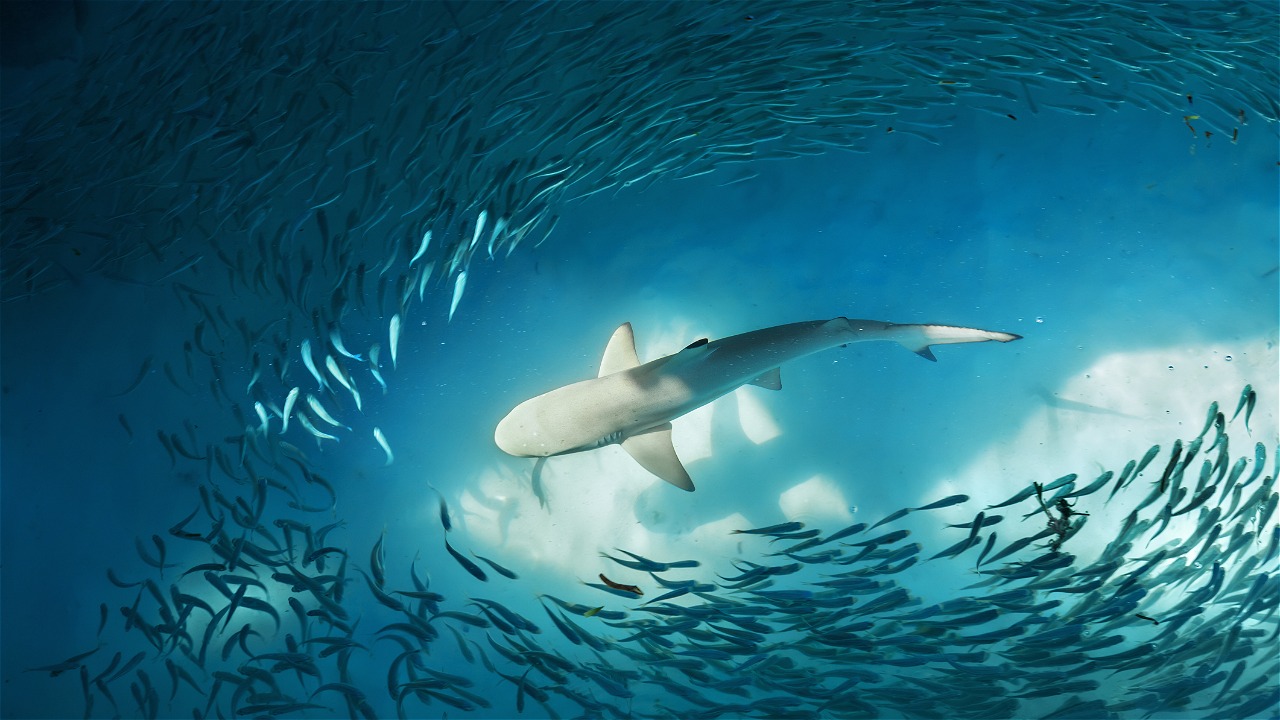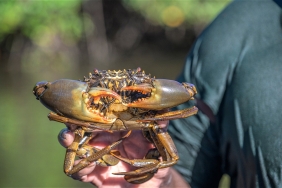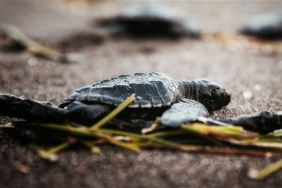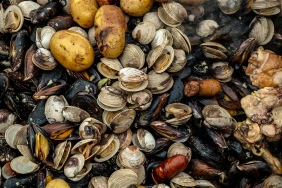OCEAN WEALTH REACHES US$24 TRILLION, YET CONTINUES TO DWINDLE
Jakarta - The world's ocean wealth rivals the economic value of developed countries, but marine resources are shrinking rapidly, says a report launched by WWF today, April 23, 2015. The report, titled Reviving the Ocean Economy: The Case for Action - 2015 analyzes the ocean's role as an economic driver and describes the threats that are pushing it toward collapse.
In the report, the value of key assets in the ocean is conservatively estimated at US$24 trillion. When compared to the world's top 10 economies, ocean resources would rank seventh with a value of resources and services of up to US$2.5 trillion annually.
The report, produced in collaboration with The Global Change Institute at the University of Queensland and The Boston Consulting Group (BCG), is the most focused study of the ocean in terms of its asset value. Reviving the Ocean Economy reveals the ocean's vast wealth through an assessment of the value of resources and services ranging from fisheries to storm protection. In addition, the report explains the ongoing pressure on ocean resources due to overexploitation, misuse and climate change.
"The ocean is capable of rivaling the wealth of the world's richest nations, yet it is left to sink towards economic failure," said Dr. Marco Lambertini, Director General of WWF International. "As responsible parties, we cannot possibly expect to continue extracting the ocean's valuable assets without seriously thinking about the impacts and without investing in the future."
The value of Indonesia's maritime economy according to the Indonesian Maritime Council in 2013 potentially amounted to 171 billion US dollars per year. Dean of the Faculty of Human Ecology (FEMA), Bogor Agricultural University, Arif Satria, said "The greatness of the maritime nation does not depend on how much marine wealth it has, but depends on how to manage it. Therefore, the sea must be managed with reference to the principles of sovereignty, sustainability and welfare. These principles must be the guide for all marine stakeholders, and then translated into a systematic action program."
According to the report, more than two-thirds of the annual economic value of the ocean depends on the health of the ocean to maintain the annual economic revenue that can be generated. Weakening fisheries, mangrove deforestation and the loss of coral reefs and seagrass beds threaten the lifeblood of marine economies around the world.
"Calculating the annual economic and asset value of the world's oceans shows us exactly what is at stake in clear, quantifiable numbers - economically and environmentally. We hope this report serves as a rallying cry for business leaders and policymakers to make wiser, more informed decisions to realize the economic future of our shared ocean," said Douglas Beal, Partner and Managing Director of The Boston Consulting Group.
The research presented in the report shows that ocean conditions are changing faster today than at any other time in millions of years. At the same time, human population growth and dependence on the ocean make restoring the ocean economy and its key assets a global imperative.
"The ocean is at greater risk today than at any time in recorded history. We are dredging too many fish, dumping too much waste, and raising ocean temperatures and acidity to the point where natural systems can no longer function," said Ove Hoegh-Guldberg, lead author of the report and Director of the Global Change Institute at the Australia-based University of Queesnland.
Climate change is a major cause of declining ocean health. The research in this report also shows that at the current rate of temperature increase, by 2050, coral reefs that provide food, jobs and protect hundreds of millions of people from storms will be extinct. Not only are sea surface temperatures rising, but climate change is also increasing the acidity of seawater, which will take hundreds of generations to recover from.
Overexploitation is another major cause of declining ocean health, with about 90 percent of the world's available fisheries already overexploited or fully exploited. The population of Pacific Bluefin Tuna alone has dropped by 96 percent.
It's not too late to reverse this destructive trend and ensure ocean health that benefits people, businesses and nature. Reviving the Ocean Economy promotes an eight-point action plan to restore ocean resources to their potential
Among the urgent solutions proposed are including ocean recovery efforts in the UN Sustainable Development Goals agenda, promoting global action on climate change, and strengthening commitments to protect coastal and marine areas.
"The ocean feeds us, provides us with livelihoods, and underpins our health and well-being, yet we are allowing it to crumble before our eyes. If stories of poor ocean health don't inspire our leaders, perhaps an economic analysis will. We have serious work to do to protect the ocean, starting with a truly global commitment to climate and sustainable development," added Dr. Lambertini.
Arif Satria reiterated the importance of the role of the ocean and the government's attention in maintaining food security, ""The ocean must contribute to food security. Therefore, in order for the availability of fish to be sustainable, its production must also pay attention to the principles of sustainability. What the Indonesian government must pay attention to is to create a Fisheries Management Plan and Marine Protected Areas that function effectively and are supported by all stakeholders. Therefore, it is necessary to involve the parties in the process of planning, implementation, and evaluation,"
WWF's global marine campaign, Sustain Our Seas, builds on WWF's decades of work with partners in marine conservation. WWF works with governments, businesses and communities to inspire leaders to take urgent action to revive the ocean economy and protect the lives and livelihoods of billions of people around the world.
-o0o-
The full report can be found at: ocean.panda.org
Some infographics and photos for this report are available at: http://bit.ly/1Is7Aex
For more information, please contact:
Nenden N. Fathiastuti, Public Relations Manager, WWF-Indonesia
Email: nfathiastuti@wwf.or.id, Hp: +62 811 1909-148
Dwi Aryo Tjiptohandono, Marine & Fisheries Campaign Coordinator, WWF-Indonesia
Email: daryo@wwf.or.id, Hp: +62 811 480-3343
Imam Musthofa, Coral Triangle Fisheries Program Leader, WWF-Indonesia
Email: imusthofa@wwf.or.id, Hp: +62 812 3853-921
Note to Editor:
- The Global Change Institute (GCI) - University of Queesnland (UQ) is an independent institution engaged in research, ideas and advice to address global change challenges. The GCI promotes discovery, solutions and advocates action to address the challenges of climate change, technological innovation and population growth. UQ is one of Australia's leading institutions for learning and research. Based on a combination of four global university rankings, UQ ranks in the top 100 of all universities in the world. UQ is also one of the founding members of the Group of Eight.
- The Boston Consulting Group (BCG) is the world's leading global management consulting and business strategy advisory firm. BCG works with private, public, and nonprofit organizations around the world to identify the best opportunities, address the most critical challenges, and transform their organizations. BCG's approach incorporates deep insights into company and market dynamics through engagement at all levels of a client's organizational structure. This ensures clients have a sustainable competitive advantage, build more competitive organizations, and guarantee long-term results. Founded in 1963, BCG is a privately held company with 81 offices in 45 countries. For more information, please visit bcg.com
group of Australian universities.





